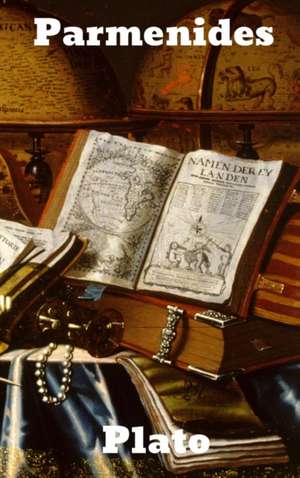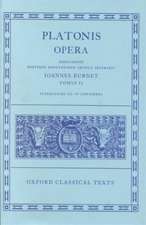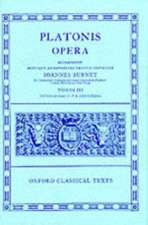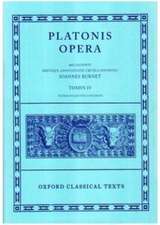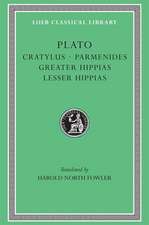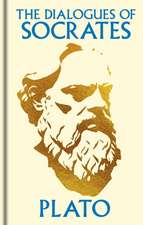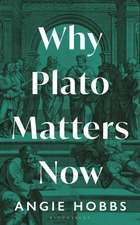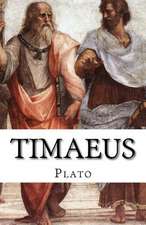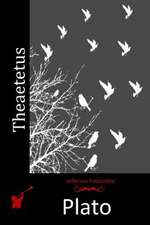Parmenides
Autor Platoen Limba Engleză Hardback – mar 1912
| Toate formatele și edițiile | Preț | Express |
|---|---|---|
| Paperback (23) | 43.40 lei 3-5 săpt. | +18.17 lei 7-13 zile |
| Hackett Publishing Company,Inc – 1996 | 88.10 lei 3-5 săpt. | +18.17 lei 7-13 zile |
| Hackett Publishing Company,Inc – 15 iun 1996 | 116.53 lei 3-5 săpt. | |
| Antigonos Verlag – 15 aug 2025 | 189.38 lei 17-23 zile | +16.41 lei 7-13 zile |
| CREATESPACE – | 43.40 lei 3-5 săpt. | |
| CREATESPACE – | 45.15 lei 3-5 săpt. | |
| CREATESPACE – | 45.99 lei 3-5 săpt. | |
| CreateSpace Independent Publishing Platform – | 46.95 lei 3-5 săpt. | |
| – | 48.81 lei 3-5 săpt. | |
| Watchmaker Publishing – 24 iul 2011 | 52.99 lei 6-8 săpt. | |
| ARC MANOR – 29 aug 2008 | 60.22 lei 6-8 săpt. | |
| Lector House – 10 iun 2019 | 62.62 lei 6-8 săpt. | |
| – | 68.32 lei 3-5 săpt. | |
| CREATESPACE – | 68.40 lei 3-5 săpt. | |
| CreateSpace Independent Publishing Platform – | 72.43 lei 3-5 săpt. | |
| Echo Library – 30 sep 2006 | 74.20 lei 38-44 zile | |
| CREATESPACE – | 82.28 lei 3-5 săpt. | |
| Book Jungle – 17 apr 2008 | 87.43 lei 6-8 săpt. | |
| – | 87.88 lei 3-5 săpt. | |
| BLURB INC – 22 feb 2019 | 90.27 lei 17-23 zile | |
| 1st World Publishing – 30 sep 2008 | 99.15 lei 6-8 săpt. | |
| Akasha Publishing, LLC – 12 noi 2009 | 102.41 lei 3-5 săpt. | |
| Alpha Editions – 26 mai 2023 | 103.84 lei 6-8 săpt. | |
| TREDITION CLASSICS – 5 noi 2011 | 141.18 lei 6-8 săpt. | |
| Hardback (3) | 128.54 lei 6-8 săpt. | |
| Binker North – mar 1912 | 128.54 lei 6-8 săpt. | |
| 1st World Publishing, Inc. – oct 2008 | 144.74 lei 6-8 săpt. | |
| Akasha Classics – 11 noi 2009 | 195.25 lei 6-8 săpt. |
Preț: 128.54 lei
Puncte Express: 193
Preț estimativ în valută:
22.73€ • 26.80$ • 19.81£
22.73€ • 26.80$ • 19.81£
Carte tipărită la comandă
Livrare economică 11-25 aprilie
Specificații
ISBN-13: 9781774414163
ISBN-10: 1774414163
Pagini: 152
Dimensiuni: 157 x 235 x 13 mm
Greutate: 0.37 kg
Editura: Binker North
ISBN-10: 1774414163
Pagini: 152
Dimensiuni: 157 x 235 x 13 mm
Greutate: 0.37 kg
Editura: Binker North
Notă biografică
Plato (428/427 or 424/423 - 348/347 BC) was an Athenian philosopher during the Classical period in Ancient Greece, founder of the Platonist school of thought, and the Academy, the first institution of higher learning in the Western world. He is widely considered the pivotal figure in the history of Ancient Greek and Western philosophy, along with his teacher, Socrates, and his most famous student, Aristotle.[a] Plato has also often been cited as one of the founders of Western religion and spirituality.[4] The so-called Neoplatonism of philosophers like Plotinus and Porphyry influenced Saint Augustine and thus Christianity. Alfred North Whitehead once noted: "the safest general characterization of the European philosophical tradition is that it consists of a series of footnotes to Plato."[5] Plato was the innovator of the written dialogue and dialectic forms in philosophy. Plato is also considered the founder of Western political philosophy. His most famous contribution is the theory of Forms known by pure reason, in which Plato presents a solution to the problem of universals known as Platonism (also ambiguously called either Platonic realism or Platonic idealism). He is also the namesake of Platonic love and the Platonic solids. His own most decisive philosophical influences are usually thought to have been along with Socrates, the pre-Socratics Pythagoras, Heraclitus and Parmenides, although few of his predecessors' works remain extant and much of what we know about these figures today derives from Plato himself.[b] Unlike the work of nearly all of his contemporaries, Plato's entire body of work is believed to have survived intact for over 2,400 years.[7] Although their popularity has fluctuated over the years, the works of Plato have never been without readers since the time they were written
Descriere
Descriere de la o altă ediție sau format:
This is an English translation of one of the more challenging and enigmatic of Plato's dialogues between Socrates and Parmenides and Zeno of Elea, that begins with Zeno defending his treatise of Parmenidean monism against those partisans of plurality.
Focus Philosophical Library translations are close to and are non-interpretative of the original text, with the notes and a glossary intending to provide the reader with some sense of the terms and the concepts as they were understood by Plato’s immediate audience.
Recenzii
Keith Whitaker's insightful introduction to this notoriously daunting text is valuable for its clarity and sobriety. The lucid interpretation will be of interest to those versed in the text and will be of great help to any who encounter the dialogue for the first time. The engaging translation humanizes the discourse without compromising its precision - a notable achievement that will earn the gratitude of readers.
--Joseph Cropsey, University of Chicago
Translation in English, including an introduction and a brief glossary. This dialogue is among Plato’s most difficult. Whitaker provides a clear entry to Plato and Platonic thinking and a succinct translation of the work itself.
